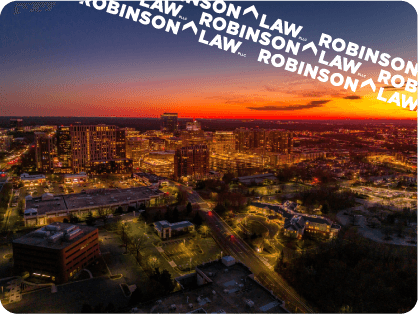Virginia Court Sides with Defendant in Drug Case, Suppressing Incriminating Evidence Found through Police Coercion | Robinson Law, PLLC
In a recent case coming out of a Virginia court, the Commonwealth appealed a lower court’s decision to grant the defendant’s motion to suppress. In its argument, the Commonwealth emphasized that the court should not have suppressed incriminating evidence found on the defendant’s person because the defendant consented to the officer’s search, thus making it a reasonable circumstance under which the officers found illegal drugs. The higher court denied the Commonwealth’s appeal and affirmed that the drugs were properly suppressed.
Facts of the Case
According to the opinion, the defendant was riding in an Uber one afternoon when the Uber driver called 911 to report that the defendant was passed out in the back of the car. Officers arrived at the scene and approached the vehicle to speak with the defendant. At that point, the defendant was alert and able to communicate. The defendant got out of the car and moved to the sidewalk so that he could speak with the officers; at that point, one of the officers asked the defendant for his identification, and the defendant handed over a Colorado driver’s license as well as a Virginia driver’s license.
The officer recognized the defendant from previous interactions and asked to search his pockets. The defendant agreed, and the officer began his search. The officer did not present any Miranda warnings or tell the defendant that he was free to leave.
An EMT arrived while the officer was searching the defendant. At that point, instead of sending the defendant to the EMT, the officer continued the search and found marijuana, Xanax, and cocaine on the defendant’s person. The defendant was arrested and charged with drug possession.
The Decision
The defendant filed a motion to suppress the drug evidence, and originally, the court denied the defendant’s motion. After the defendant appealed, the court reconsidered and determined that the search was a violation of the defendant’s right to privacy. Thus, said the court, the motion to suppress should have been granted. Soon, the Commonwealth appealed this decision, arguing that the original denial of the motion to suppress was the correct ruling.
The higher court considered the case’s procedural background as well as the circumstances of the interaction between the officer and the defendant. According to the court, a reasonable person in the defendant’s situation would not have felt free to leave the scene or decline to answer the officer’s questions. No one told the defendant that he had the right to leave at any point in time, and thus he likely felt coerced to answer the officer’s inquiries and consent to the search in question.
Because of this coercion, the court concluded that the search was not voluntary and that it was based on flagrant misconduct by the police officers. The officers did not allow the defendant to seek medical help, but instead took advantage of him by searching him without the proper warrant or consent. Thus, the lower court’s decision was affirmed and the incriminating evidence remained suppressed.
Have You Been Charged with Drug-Related Crimes in Virginia?
Many defendants feel helpless in the face of drug charges in Virginia, but at Robinson Law, PLLC, we bring you expertise and assistance to aggressively fight your charges. Our team is ready to hear the details of your case and provide you with the representation that you need. For a free consultation, call us at 703-542-3616.












